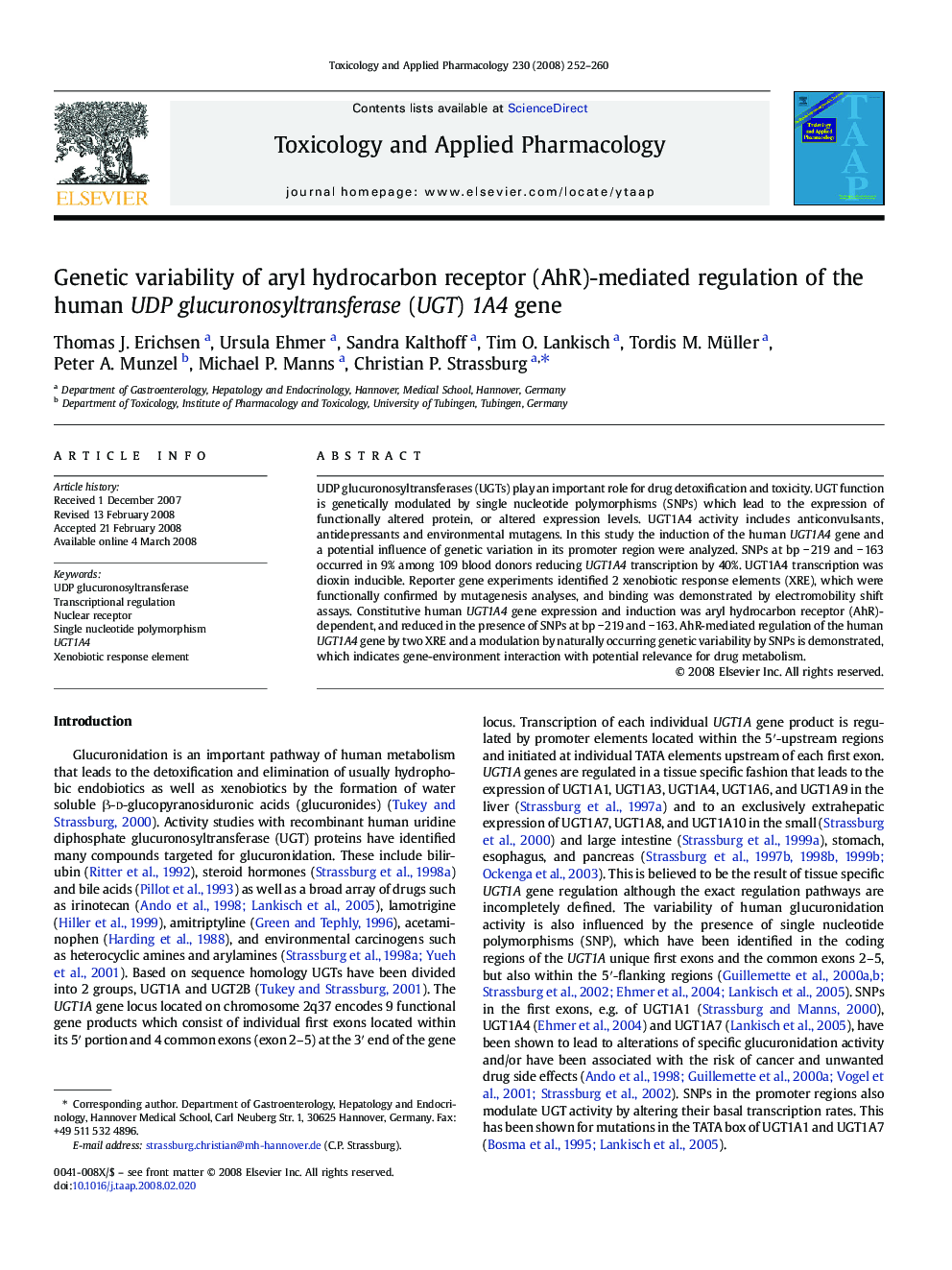| Article ID | Journal | Published Year | Pages | File Type |
|---|---|---|---|---|
| 2570364 | Toxicology and Applied Pharmacology | 2008 | 9 Pages |
Abstract
UDP glucuronosyltransferases (UGTs) play an important role for drug detoxification and toxicity. UGT function is genetically modulated by single nucleotide polymorphisms (SNPs) which lead to the expression of functionally altered protein, or altered expression levels. UGT1A4 activity includes anticonvulsants, antidepressants and environmental mutagens. In this study the induction of the human UGT1A4 gene and a potential influence of genetic variation in its promoter region were analyzed. SNPs at bp â 219 and â 163 occurred in 9% among 109 blood donors reducing UGT1A4 transcription by 40%. UGT1A4 transcription was dioxin inducible. Reporter gene experiments identified 2 xenobiotic response elements (XRE), which were functionally confirmed by mutagenesis analyses, and binding was demonstrated by electromobility shift assays. Constitutive human UGT1A4 gene expression and induction was aryl hydrocarbon receptor (AhR)-dependent, and reduced in the presence of SNPs at bp â 219 and â 163. AhR-mediated regulation of the human UGT1A4 gene by two XRE and a modulation by naturally occurring genetic variability by SNPs is demonstrated, which indicates gene-environment interaction with potential relevance for drug metabolism.
Keywords
Related Topics
Life Sciences
Environmental Science
Health, Toxicology and Mutagenesis
Authors
Thomas J. Erichsen, Ursula Ehmer, Sandra Kalthoff, Tim O. Lankisch, Tordis M. Müller, Peter A. Munzel, Michael P. Manns, Christian P. Strassburg,
